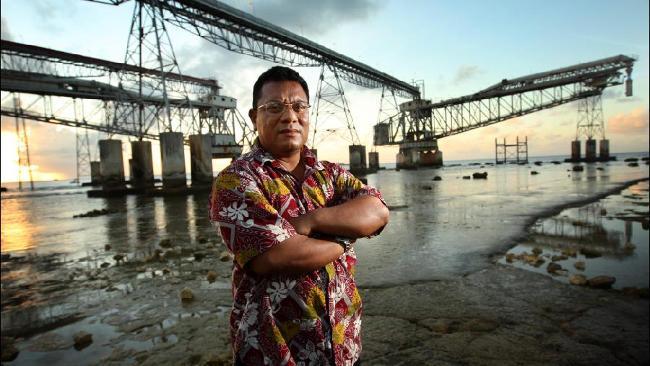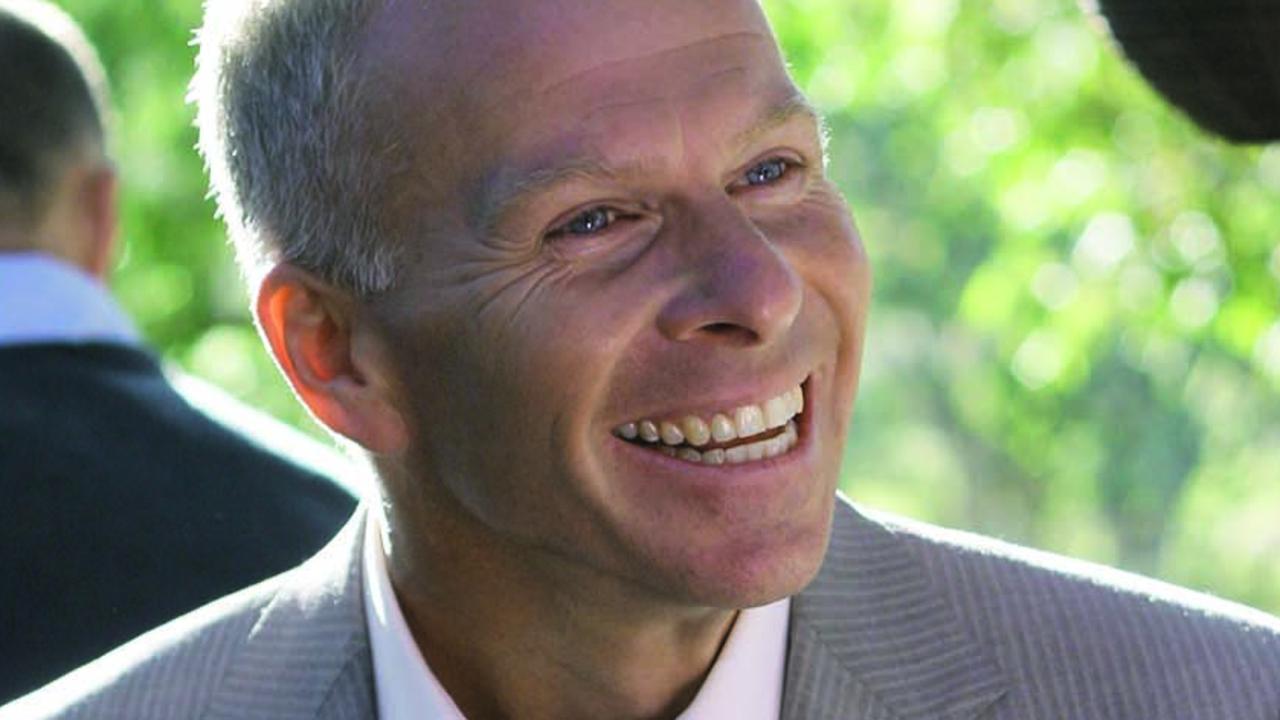Nauru instability 'Aussie phosphate plot'
AN AUSTRALIAN company is accused by the President of Nauru of waging a corrupt campaign to win control of the nation's phosphate industry.

AN AUSTRALIAN company is accused by the President of Nauru of waging a corrupt campaign to win control of the Pacific nation's phosphate industry.
The conduct of the Gupta family, behind the privately owned Gold Coast company Getax and who reject allegations of wrongdoing, has been the subject of recent secret briefings by intelligence agency the Office of National Assessments, senior Australian diplomats and the Australian Federal Police.
Australian officials have confidentially expressed concern to the government of Nauru over Getax's alleged role in the destabilisation of the tiny country, which has been crippled by corruption, financial mismanagement and serious health issues, including diabetes and obesity.
Now being run under state of emergency laws, Nauru has been in political crisis since shortly after a Getax-funded trip to Singapore in January for the opposition and several then-government MPs.
Nauru's President, Marcus Stephen, lost his 12-6 parliamentary majority with the subsequent defection to the opposition of three government MPs who were on the fortnight-long trip.
Two elections in April and June, marked by unusual hand-outs of money, failed to resolve a nine-all parliamentary deadlock.
Mr Stephen and Justice Minister Mathew Batsiua, who came to power on a ticket of reform and anti-corruption, issued a plea yesterday to the Gillard government to launch a far-reaching probe into the activities of Getax and any financial ties it may have with politicians in Nauru.
Mr Stephen and Mr Batsiua said an investigation of bank accounts, new boats and cars, and alleged bribes was vital for the democratic future and stability of Nauru. They said the tiny country's Commissioner of Police, an appointee seconded from the AFP, lacked the resources to mount an investigation that would span Singapore, Australia and Nauru.
Getax Australia and related companies embroiled in the matter are controlled by Gold Coast-based Amit Gupta, his father GS Gupta and Amit's brother, Ashok. Getax, which has bought millions of tonnes of phosphate from Nauru over the past 15 years for supply to other markets, says it has only ever acted with honesty, integrity and concern for the well-being of the Pacific nation.
Getax asked for questions in writing from The Australian but it has declined to answer them. Ashok Gupta said: "These are all wrong allegations; there is no base and no merit in these allegations."
Nauru opposition leader Baron Waqa said Getax had nothing to do with the political paralysis. "Getax has always helped Nauru . . . Getax is disappointed with the way the country is running."
Mr Waqa refused to confirm or deny questions as to whether Getax was financially involved in the opposition's bids this year to oust the democratically elected government with attempted "no-confidence" motions.
Mr Stephen said Nauru's fragile economic and political systems were readily exploited.
"This needs a full, urgent and independent investigation by Australia -- we simply don't have the capacity to do it," Mr Stephen said.
A briefing note by Nauru's Director of Public Prosecutions claims there have been "attempts to bring about a change of government by bribery of members of parliament". Nauru, saddled with debts arising from infamous past episodes of corruption and rip-offs by former politicians and external consultants, gets up to $30 million a year in funding from the Australian government. It also receives funding from Taiwan and Russia.
Senior sources said the Australian government was concerned Nauru's financial predicament would become more precarious and require greater funding if the country lost control of its only asset, phosphate.
Documents obtained by The Australian show how a Getax offer to loan Nauru $25 million at an interest rate of 15 per cent would be likely to have resulted in the country defaulting on its repayments, triggering contract provisions that would have let Getax take over the Nauru-owned phosphate industry and reap its profits until the remaining resource on the island had been exported.
Documents and interviews with key figures, including opposition members and business leaders, disclose how the rejection of the Getax loan offer was followed by the confidential Getax-funded Singapore trip.
"There is a real fear the opposition will succeed and enter into an agreement that will spell the end of the phosphate, and that would be disastrous," Mr Batsuia said.
Mr Stephen has obtained documents showing opposition members on salaries of less than $150 a week spending significant sums of cash on boats, cars, voters and trips. The country's leading retailer, Sean Oppenheimer, said amounts of money unprecedented in recent years were spent by voters in his outlets during the two election campaigns after it was handed out by opposition members.
The political deadlock and uncertainty have stymied Nauru's prospects for economic progress and forced Mr Stephen to issue rolling declarations of a state of emergency.
Last month, the opposition launched a costly legal challenge to the state of emergency declarations, hiring high-profile Queensland solicitor Kerry Smith-Douglas and barrister Ken Fleming QC. Documents show the legal challenge was estimated to cost $100,000.
The opposition's challenge ended on Wednesday when former South Australian Supreme Court judge John von Doussa QC ruled that Mr Stephen's actions, which have ensured a supply of funds from Treasury to prevent the local economy from stalling, were lawful.


